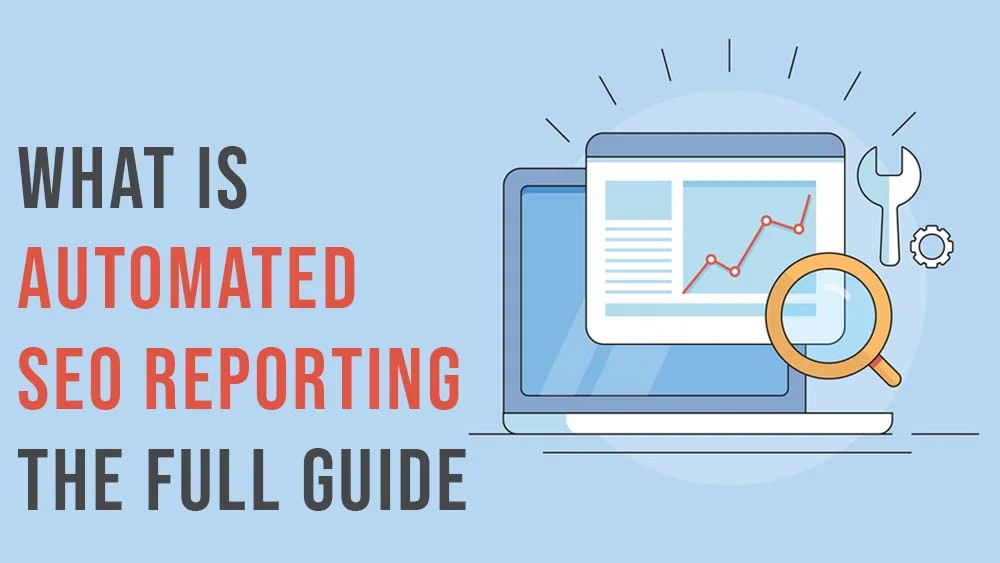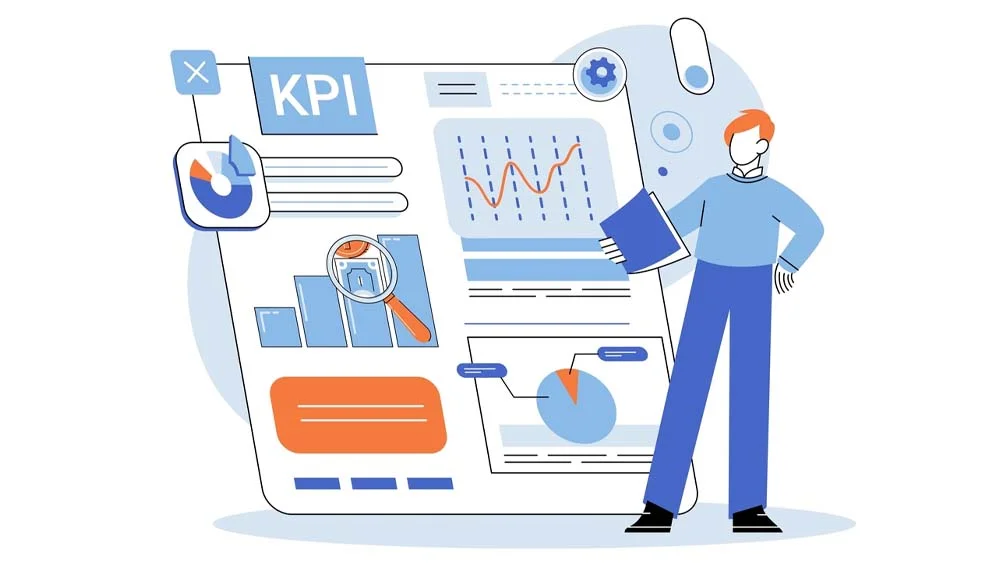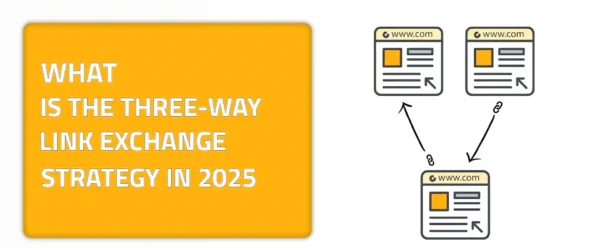Unveiling What is Automated SEO Reporting in 2024
In today’s world of vast and complex algorithms, the digital landscape that we’re living in is being revolutionized incredibly. Let me take you through a picture I painted. Imagine you’re navigating the vast expanse of the internet, trying to make your mark amidst the virtual chaos. Enter automated SEO reporting, your trusty sidekick in the quest for online supremacy. But what exactly is this mystical mixture of automation and search engine optimization?
Let me prepare you with a quick “buckle up,” for this journey is about to get way more detailed and exciting than you think. This is one guide that will help you explore the vast realm of SEO and it’s automated reporting process. You know how we all wished to be born with food served on platters of gold? Automated SEO reporting actually gives you a taste of such luxuries.
Not quite the literal one, yet it facilitates process and helps you in ways you didn’t think you needed until they were there. Forget all about tedious manual reports or deciphering cryptic analytics; with automated SEO reporting, it’s all about efficiency, precision, and a sprinkle of digital magic. One that speeds things up in a very effective way. Join me in demystifying the inner process of it all and uncovering the potential automated SEO reporting has to boost your online presence to new heights.
Automated SEO Reporting: What Is It Exactly?
Understanding the meaning behind automated SEO reporting will help you in many aspects achieve various success milestones that you have in your visibility strategy.
Consider automated SEO reporting the superhero cape your digital strategy needs. Picture this: you’re in the fast-paced world of online marketing, juggling keywords, content, and analytics like a pro. But amidst the chaos, enter automated SEO reporting. Using this creative tool, you can harness the power of automation to streamline the process of gathering, analyzing, and presenting crucial SEO data.
As I mentioned above, you can forget all about those days when your back ached because you’ve been sitting for long hours entering endless data manually through endless spreadsheets. With automated SEO reporting, you can sit back and let the algorithms do the heavy lifting. From tracking keyword rankings to monitoring backlink profiles and everything in between, this digital marvel ensures you’re always one step ahead in the ever-evolving SEO arena.
Let me tell you that this is not only it; there is more to this tool than meets the eye. Not only does automated SEO reporting save you time and sanity, but it also delivers insights with pinpoint accuracy, empowering you to make data-driven decisions that drive real results.
So, whether you’re a seasoned SEO developer or just trying on your new digital uniform, this tool guarantees that you have the empowerment you need to create the right SEO strategy. Below, we will explain how to set up SEO reports through automation in three simple and easy steps.
Automated SEO Reporting: Step Number 1: Define Your KPIs
Understanding key performance indicators (KPIs) is like setting the coordinates for your SEO journey. This is a process that simply gives you a clear roadmap to success.
In the realm of automated SEO reporting, identifying KPIs is an essential step that ensures your efforts are focused and your results are measurable. By pinpointing specific metrics such as organic traffic, keyword rankings, conversion rates, and backlink quality, you’re essentially telling your automated reporting tool what success looks like for your business.
This precision not only helps streamline the data collection process but also enables the tool to deliver insights that are directly aligned with your objectives. Instead of drowning in a sea of irrelevant data, you’re presented with actionable insights that drive successful outcomes.
So, whether you’re aiming to boost website visibility, increase lead generation, or improve user engagement, defining KPIs sets the stage for efficient, effective automated SEO reporting that propels your digital strategy forward.
P.S: The Selection of KPIs Varies Based on Industry and Business Goals
Keep in mind that the selection of KPIs varies based on industry and business goals. For example, a local bakery might focus on local search visibility and organic traffic growth, while a fintech website may prioritize organic keyword rankings, domain authority, and lead generation. By selecting KPIs tailored to their specific objectives, businesses can efficiently utilize automated SEO reporting to enhance their online presence and achieve measurable results.
Step Number 2: Start Creating The Report
To embark on your journey into automated SEO reporting, begin by selecting a reputable tool that fits your business needs. Look for features such as customizable templates, integration with analytics platforms, and an intuitive interface. Once you’ve chosen your tool, define the key metrics you want to track, like keyword rankings, organic traffic, and backlink profiles. Customize your report templates accordingly to ensure they provide actionable insights.
Then, establish a schedule for report generation based on your preferred frequency—whether weekly, monthly, or quarterly. Regular review and analysis of these reports are essential to identifying trends, opportunities, and areas for improvement. By harnessing the power of automated SEO reporting, you’ll not only save time but also gain valuable insights to optimize your digital presence effectively.
Automated SEO Reporting: Step Number 3: Choose the Format of the Report That You Desire
Once your report that you’ve created emerges from the digital depths, it’s showtime! Delivering it to your eagerly awaiting client is akin to unveiling a long-awaited process. You can streamline this process with a touch of automation magic. Here’s how you should do it in details:
Send Reports in Pdf Format Automatically
Sending PDF reports automatically in the context of automated SEO reporting is a simple piece of cake! Simply set up your reporting tool to generate PDF versions of your reports at predefined intervals, whether it’s weekly, monthly, or quarterly. Once configured, you can then schedule these PDF reports to be automatically emailed to your clients or stakeholders. With this seamless process in place, you’ll ensure that your recipients receive valuable insights on time, without any manual effort on your part. It’s the perfect blend of efficiency and convenience to keep everyone in the loop and informed about your SEO performance.
Automated SEO Reporting: Allow Data Dashboard Access
Keep in mind that certain clients opt for Looker Studio. This is a platform that features customizable dashboards. Aiming to peruse automated SEO reports. Hence, it’s advisable to extend this choice to your clientele. Utilize Google Looker Studio to display ranking data, website tech audit results, and additional metrics from your KPI roster. Connect the relevant data sources and furnish the client with the link, granting them access to the most recent report data at their convenience. Although this option demands additional setup, it offers an elevated level of transparency, ensuring clients remain informed and empowered in their SEO endeavors.
Access to the White Label
If your clients know their way around their SEO tactics and are eager to dive into the data to track their SEO progress independently, you can grant them exclusive access to the SEO platform. Opting for White Label access is ideal in this scenario. This functionality empowers you to tailor the platform to reflect your brand’s identity fully. You have the flexibility to tweak colors, incorporate logos, and set up a personalized domain name, ensuring the platform mirrors your brand seamlessly. Once you’ve completed the customization process, you can grant custom access to your clients by allocating additional user seats on the platform. Many white-label SEO tools offer the ability to customize access for each client, enabling you to specify which tools they can utilize and the extent of data they can access within their account.
Wrapping It Up!
In conclusion, automated SEO reporting is a game-changer in digital marketing. That is because it helps you automate your analysis. Additionally, it saves time and resources while providing valuable insights. This process enhances efficiency, empowers data-driven decisions, and ensures businesses stay ahead in the digital landscape.
Embracing automated reporting maximizes productivity and unlocks the full potential of SEO strategies, propelling businesses towards greater online success. Whether you’re a seasoned marketer or new to SEO, automated reporting is the secret weapon for conquering the digital realm with confidence.










